We use cookies to improve your online experiences. To learn more and choose your cookies options, please refer to our cookie policy.
Open Days
Register for our Open Day
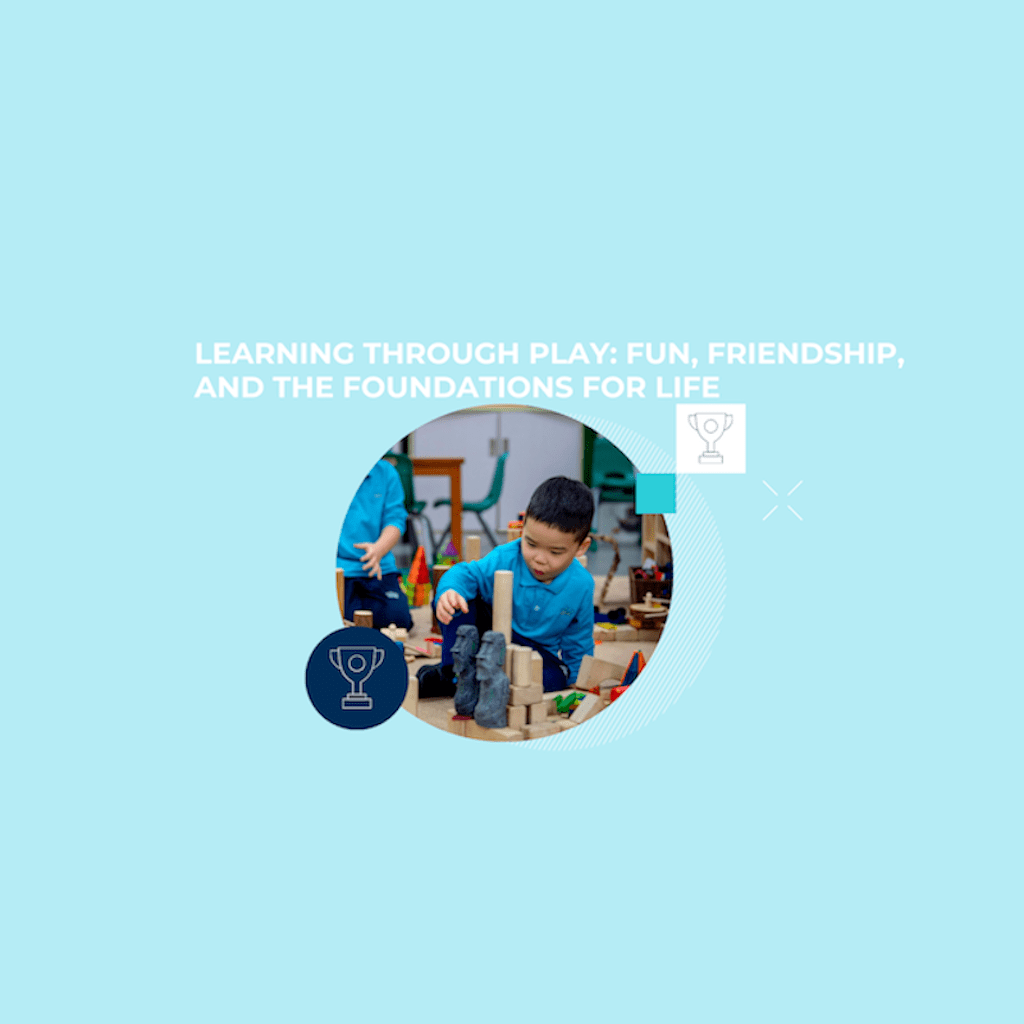
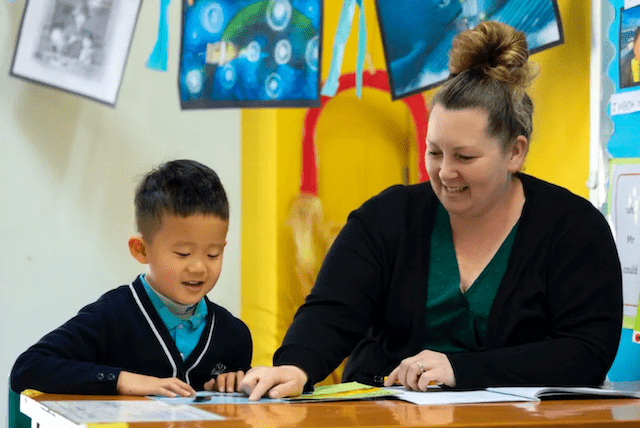
The Early Years at Léman International School (LIS) Chengdu are a joyful time.
Our littlest learners are discovering the world around them and experiencing many things for the first time. This means every moment is a learning experience, as they follow their natural curiosity, experiment and investigate, and express their creativity.
The sense of wonder we seek to spark in the Early Years is driven by our play-based learning approach. But what is play-based learning? And how does learning through play develop the fundamental cognitive, social, emotional, and physical skills our children need to flourish at Primary – and beyond?
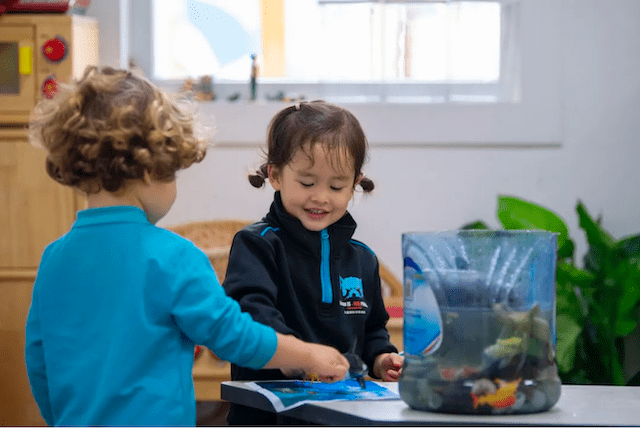
What is play-based learning?
As the name suggests, play-based learning (or playful learning) is an approach through which children – with the support of Early Years practitioners – develop vital knowledge and skills by actively taking part in play.
Effective play-based learning in early childhood takes place when children are given space, time, and autonomy to engage in activities and interact with resources that are interesting to them. This may involve children playing with other children, with adults, or alone.
Play-based learning encourages teachers to see children as active explorers and discoverers. It sparks a child’s natural curiosity and their desire to experiment, explore, and solve problems. It also ignites their imagination. By encouraging curiosity and social interaction in this way, play-based learning lays the foundations for a lifelong interest in new discoveries. It also nurtures positive wellbeing and engagement.
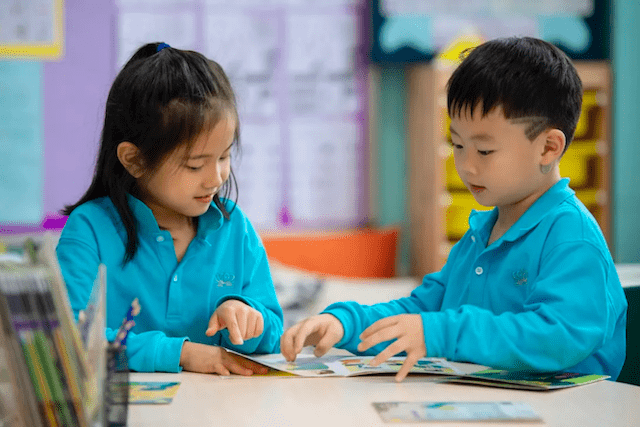
1. Different types of play-based learning in early childhood
Learning through play takes on lots of different forms. It might involve free (or self-directed) play, playing with our teachers’ guidance (guided play), or taking part in a structured game or activity.
Our children might:
Play with objects or materials.
Take part in physical play.
Enjoy pretend play.
Embrace symbolic play (where visual stimulants are used to convey meaning, such as language, drawings and other visual arts, mathematics, music, and dance).
Play games with set rules (or rules they invent!)
2. Play as part of our Early Years Foundation Stage (EYFS) curriculum
Play, and more importantly learning through play, is an essential part of the Early Years Foundation Stage (EYFS) curriculum.
Through play, we create a colourful, active, and meaningful EYFS programme, where our youngest learners work towards the seven key areas of learning and development. The seven EYFS areas shape what our children are taught and how their progress is monitored. As our learners move into Reception (age 3 to 4), we place greater emphasis on teaching skills that will prepare them for Primary.
At every stage, we make sure learning is tailored to the needs of the individual. As a result, our play-based learning programme nurtures the unique physical, cognitive, and social development of each child.
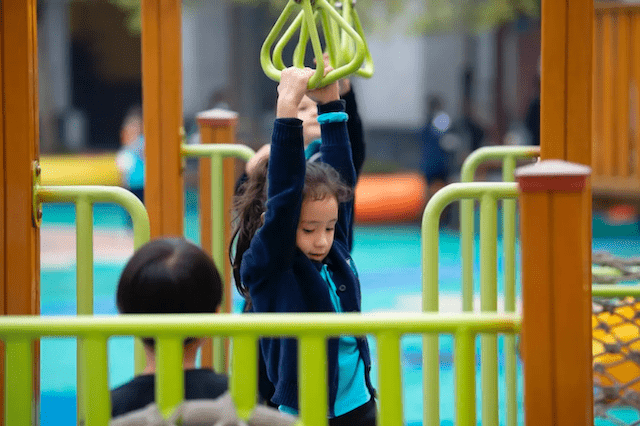
The benefits of play-based learning
Learning through play nurtures every aspect of a child’s development. Through play, our students develop their communication skills, their creativity, and their social and intellectual skills. They also grow physically and emotionally.
1. Play-based learning supports social development
Play often involves social interaction, which is vital for language development. It also helps children to build friendships, which are essential to social and emotional development. Through play, children can practice their interpersonal skills, such as co-operating and working with others. This teaches them about relationships.
2. Play-based learning gives children freedom
Play-based learning, especially when self-initiated, gives a child the freedom to experiment with different identities. During a role-playing game, for example, a child might pretend to be a mischievous character by deliberately making a mess and refusing to clean up.
3. Play-based learning encourages self-expression and creativity
Play gives children the time and space to interact with open-ended, multi-sensory resources, leading to self-expression and creativity. For example, when provided with spoons, containers, and teabags of different flavours, one child might imagine brewing, smelling, and tasting the tea they’ve made. Another, however, may use what they’ve been given to create musical instruments.
4. Play-based learning encourages problem solving
In a secure and welcoming setting, children are more likely to explore and investigate. As they play, they develop the confidence to direct their own learning, find different ways to achieve a task or solve a problem, and take risks without fear of failure.
5. Play-based learning focuses attention
Giving children control (self-directed play) encourages them to make decisions about how they spend their time – and the effort they put into activities. This develops perseverance, resilience, and intrinsic motivation (the desire to do something driven by personal ambition). A great example of intrinsic motivation is a study that found four-year-olds focused more consistently when pretending to be superheroes!
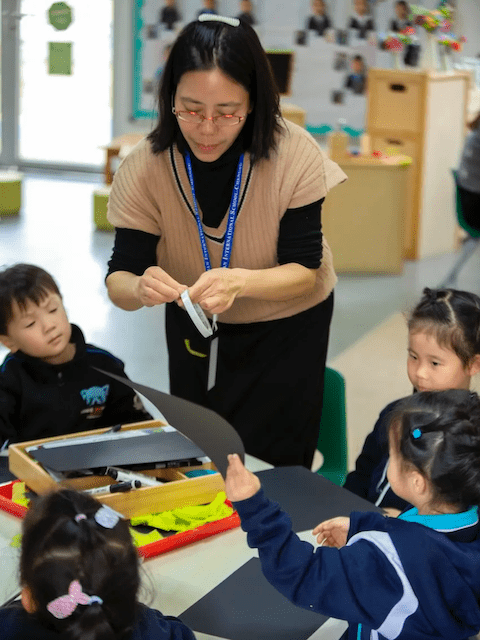
We know children learn best when they’re happy, engaged, and motivated. And that’s why our play-based Early Years programme focuses on fun, exploration, and inspiring a sense of wonder.
1. Creating a warm environment
Our inviting Early Years spaces are the perfect places to learn to play – and play to learn. Every morning starts with a warm welcome, which ensures each child feels safe, happy, and at home. This prepares them for a day full of learning adventures.
2. Outdoor exploration
Our children love to explore our outdoor areas. Whether it’s making some noise in our musical forest, getting hands-on with water play, or exploring our castle, every adventure develops our learners’ gross motor and movement skills.
3. Specialist lessons
Specialist subject lessons are brought to life by exciting play-based learning. Guided by specialist teachers, our children immerse themselves in activities that help them develop early Mandarin, music, and PE skills.
4. Opportunities to socialise
Our youngest children spend lots of time together, building friendships and developing their interpersonal skills. Lunch in the school cafeteria is a great time to bond and practice good table manners. We make tidying up a fun game, too.
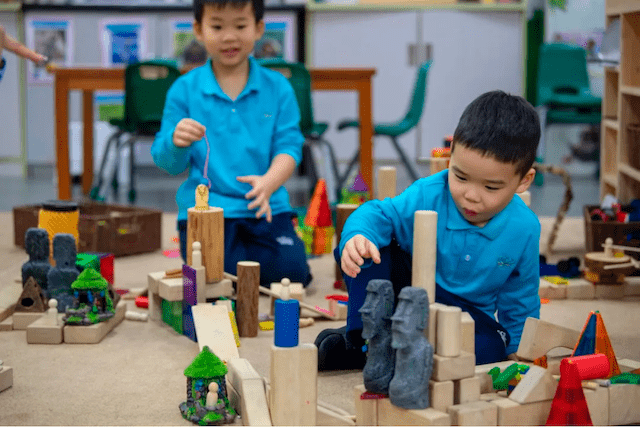
The foundations of lifelong learning
Play-based learning encourages curiosity and social interaction. It ignites imaginations and inspires a sense of wonder. It also – through the EYFS curriculum – supports every aspect of our children’s formative development. Really importantly, learning through play creates a joyous, laughter-filled environment, where everyone is engaged, motivated, and having fun.
Learning through play | LIS Chengdu
Discover how Léman International School Chengdu’s innovative play-based learning approach supports the holistic development of Early Years children.